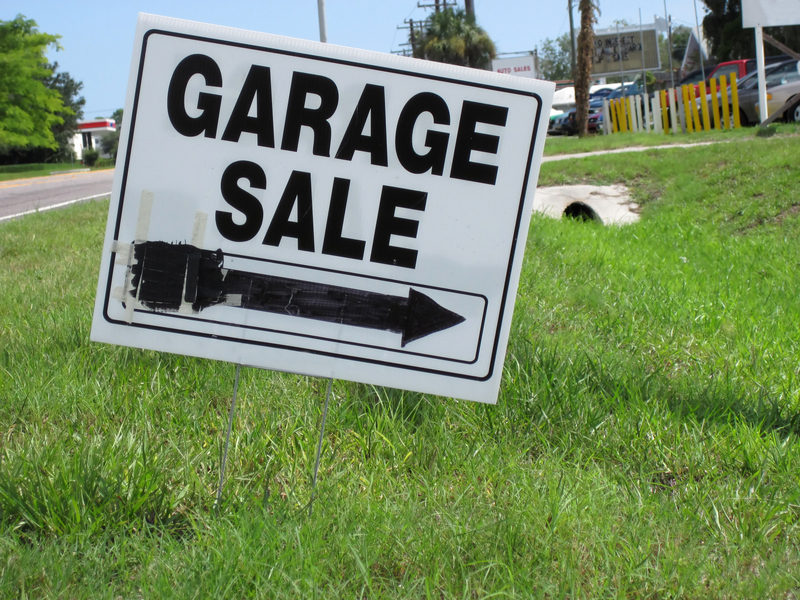How Waste Collection Boosts Your Business
Posted on 06/11/2024
Waste collection is often overlooked in the broader context of business operations, yet its impact is far-reaching. This essential service offers more than just cleanliness and compliance with regulations; it significantly influences profitability, efficiency, and the overall reputation of a business. Let's explore how waste collection can elevate your business to new heights.
Improved Operational Efficiency
Effective waste collection protocols streamline business operations. By ensuring that waste is collected regularly and efficiently, businesses can maintain a cleaner and more organized work environment. This minimization of clutter allows employees to work more efficiently, leading to enhanced overall productivity.
A well-organized waste management system also reduces the time and resources spent dealing with waste-related issues. This allows businesses to allocate more resources to core activities that drive growth and development. In industries like manufacturing and food production, where waste can quickly accumulate, efficient waste collection can make a substantial difference in operational efficiency.

Cost Savings
Effective waste management can lead to significant cost savings for your business. By segregating waste correctly, recycling, and disposing of it appropriately, businesses can reduce the costs associated with waste disposal. Recycling programs, in particular, can turn potential waste into valuable resources, creating an additional revenue stream.
Moreover, businesses that manage their waste effectively can avoid the hefty fines and legal penalties often associated with improper waste disposal. Ensuring compliance with environmental regulations not only saves money but also helps maintain a positive relationship with regulators.
Enhanced Sustainability
In today's environmentally conscious world, sustainability is more than a buzzword; it is a business imperative. Implementing a robust waste collection strategy underscores a commitment to environmental stewardship. This can enhance your business's reputation, attract eco-conscious customers, and even lead to partnerships with other sustainability-driven organizations.
Incorporating sustainable waste management practices, such as recycling and composting, can significantly reduce your carbon footprint. This not only benefits the environment but also positions your business as a leader in sustainability, providing a competitive edge in the market.
Boost Customer and Employee Morale
A clean and well-maintained business environment fosters a positive atmosphere for both customers and employees. Customers are more likely to return to a business that prioritizes cleanliness and hygiene. Employees, too, appreciate a tidy workspace, which can lead to increased job satisfaction and morale.
Moreover, businesses that engage in corporate social responsibility (CSR) activities, such as waste reduction and recycling programs, often see a boost in employee engagement. Employees take pride in working for a company that aligns with their values and takes tangible steps to make a positive impact on the environment.
Improving Public Relations
Public perception of your business is crucial. Engaging in proper waste management practices demonstrates a commitment to the community and the environment. This can be a powerful tool in public relations, helping to build trust and credibility.
Positive publicity resulting from good waste management practices can attract customers who prioritize sustainability, potentially leading to increased sales and loyalty. Social media and other communication channels can amplify these positive messages, further enhancing your business's public image.
Compliance with Regulations
Compliance with waste disposal regulations is not just a legal requirement; it is also good business practice. By adhering to local, state, and federal waste management regulations, businesses can avoid legal issues and potential fines. This compliance demonstrates a commitment to lawful and ethical business practices, which can enhance your business's reputation.
Additionally, many industries have specific waste management regulations that must be followed. For example, medical facilities must dispose of hazardous waste according to strict guidelines. Ensuring compliance helps avoid any disruptions that could arise from regulatory issues, thus supporting smooth business operations.
Long-term Business Sustainability
A strategic approach to waste management is integral to the long-term sustainability of any business. By reducing waste and promoting recycling, businesses can conserve resources, reduce their environmental impact, and set themselves up for long-term success.
Investing in sustainable waste collection practices can provide long-term benefits, including cost savings, improved efficiency, and a stronger brand reputation. Businesses that prioritize sustainability are better positioned to adapt to future environmental regulations and market shifts, ensuring longevity and success.

Implementing Effective Waste Collection Strategies
Are you convinced of the benefits but unsure where to start? Here are some practical steps to implement an effective waste collection strategy in your business.
Assess Your Current Waste Management Practices
Begin by conducting a thorough assessment of your current waste management practices. Identify the types and quantities of waste your business produces and evaluate how it is currently being managed. This assessment will help you pinpoint areas for improvement.
Set Waste Reduction Goals
Once you have identified areas for improvement, set clear and achievable waste reduction goals. These goals could include targets for recycling, composting, or reducing the overall amount of waste produced. Establishing measurable goals will help track your progress and ensure accountability.
Educate and Train Employees
Employee involvement is crucial for the success of any waste management program. Educate and train your employees on the importance of waste reduction and proper disposal methods. Encourage them to participate in recycling and other sustainability initiatives.
Partner with Waste Management Services
Partnering with a professional waste management service can help streamline your waste collection process. These services have the expertise and resources to handle waste efficiently and in compliance with regulations. They can also provide valuable insights and recommendations for improving your waste management practices.
Monitor and Evaluate Progress
Regularly monitor and evaluate the progress of your waste management initiatives. Use data and metrics to track your performance against your waste reduction goals. Make necessary adjustments to your strategies based on the results to ensure continuous improvement.
Create a Green Marketing Strategy
Leverage your sustainable waste management practices as a marketing tool. Highlight your commitment to sustainability in marketing campaigns, on your website, and through social media channels. Showcase your achievements and share success stories to engage customers and stakeholders.
Conclusion
Waste collection is not just a necessary operational task; it is a strategic asset that can significantly benefit your business. By improving operational efficiency, reducing costs, enhancing sustainability, boosting morale, and improving public relations, effective waste management can drive business growth and success. Implementing a comprehensive waste collection strategy requires commitment and effort, but the long-term rewards make it worthwhile. Embrace sustainable waste management practices today to secure a brighter and more prosperous future for your business.
Latest Posts
Cutting Down Waste in the Workplace


 office@benandjerry.org.uk
office@benandjerry.org.uk https://benandjerry.org.uk/
https://benandjerry.org.uk/

